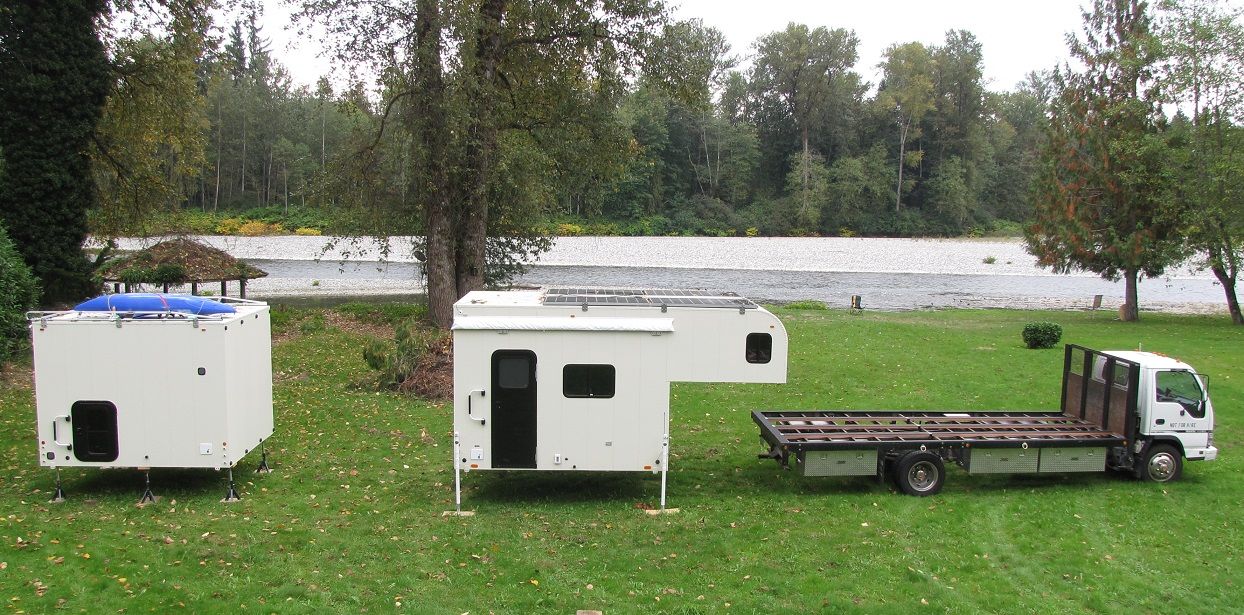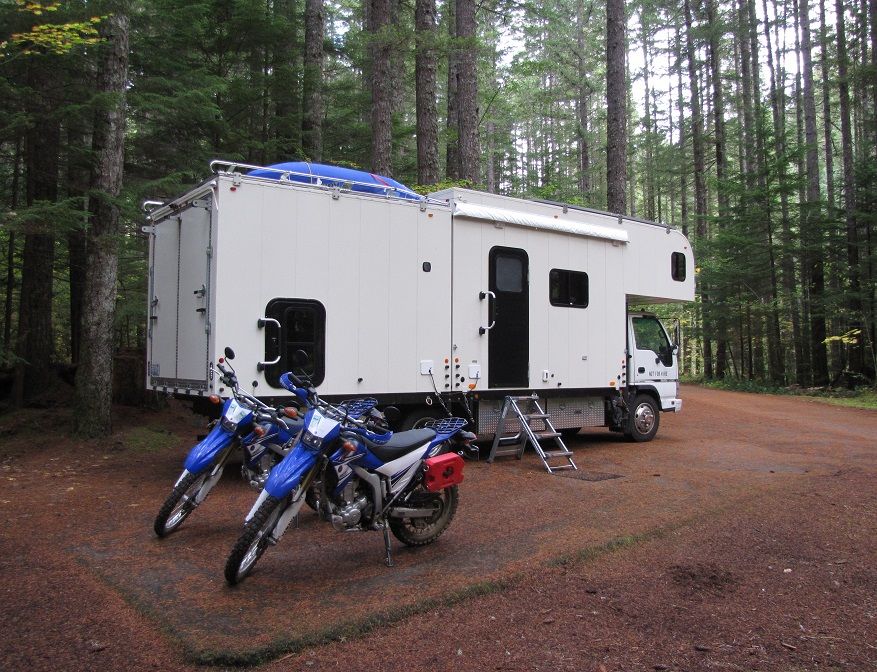dogemuffins
May 10, 2016Explorer
DIY Flatbed Truck Camper Idea
I've seen very few builds online where people built their own camper on a flatbed pickup truck - most of the DIY truck campers are of the type that slide into the box - to me this seems silly, because you lose floor space and it's more material and more effort - as long as you don't care about being able to easily remove it (and I don't intend to remove it)...
I would like to purchase an older Chevy/GMC 3/4ton or 1ton flatbed pickup truck and build on that (or maybe get a regular pickup and either remove the box or build upon it), rather than the typical van chassis that most RVs use, because trucks are much easier to work on than vans.
The biggest problem I envision is height. The tall floor height means getting in and out isn't as easy as with an RV... then again, I found removable/folding stairs for cheap online that solves this problem. My other concern regarding height is that I would like to be able to stand in the van - that's why I'd prefer to go with a dually (besides, a single rear wheel flatbed is not very common)... but I'm still wondering if it'll just be too tall to be practical. I have thought about a pop up but that just seems like extra weight and engineering work that makes it anything but simple.
ANyway, I'd love to hear any reasons this is a really dumb idea (or a great idea), and/or from people that have done it. Your thoughts are appreciated!
I would like to purchase an older Chevy/GMC 3/4ton or 1ton flatbed pickup truck and build on that (or maybe get a regular pickup and either remove the box or build upon it), rather than the typical van chassis that most RVs use, because trucks are much easier to work on than vans.
The biggest problem I envision is height. The tall floor height means getting in and out isn't as easy as with an RV... then again, I found removable/folding stairs for cheap online that solves this problem. My other concern regarding height is that I would like to be able to stand in the van - that's why I'd prefer to go with a dually (besides, a single rear wheel flatbed is not very common)... but I'm still wondering if it'll just be too tall to be practical. I have thought about a pop up but that just seems like extra weight and engineering work that makes it anything but simple.
ANyway, I'd love to hear any reasons this is a really dumb idea (or a great idea), and/or from people that have done it. Your thoughts are appreciated!

